Which countries love and hate Valentine's Day?
- Published
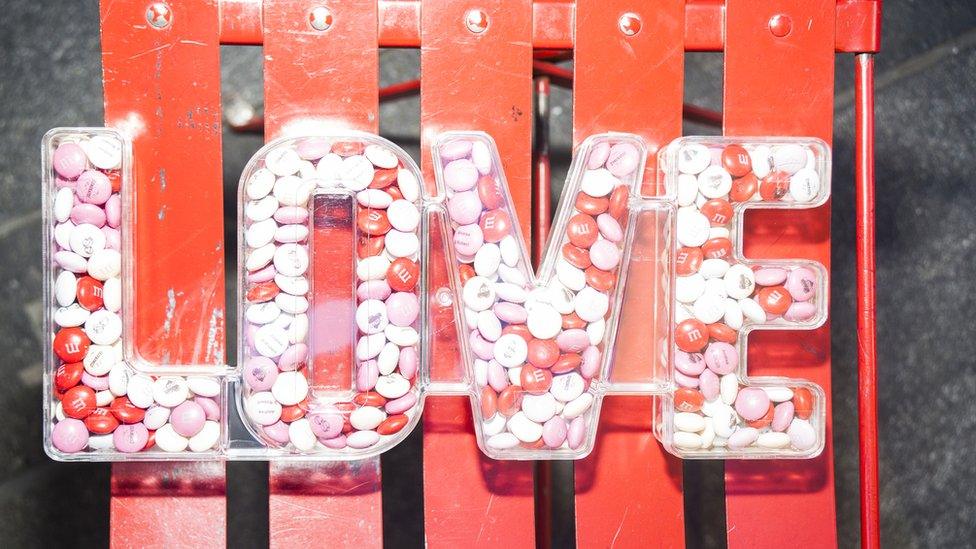
Valentine's Day is sweet for some, but not everyone sees it through rose-tinted spectacles
For the cynics among us, Valentine's Day is an annual nightmare: everything turns pink and heart-shaped, restaurants slap a premium price on a sub-par "special menu", and Hallmark shareholders are laughing all the way to the bank.
But beyond the cuddly toys and red roses, the tradition draws mixed reactions around the world.
From the hardline to the downright bizarre, here are just some of the ways Valentine's Day is embraced - or spurned like an unwanted lover...
Indonesia's condom raids
Authorities in some parts of Indonesia have banned students from celebrating Valentine's Day, saying it encourages casual sex. In the city of Makassar, police raided shops and dismantled condom displays.
The mayor told the BBC that condoms were removed from sight after customers complained, but would still be sold discreetly.
Valentine's Day has its roots in a Roman fertility celebration, but later evolved into a Christian feast day - a fact that worries conservatives in some Muslim-majority countries.
In Indonesia's second-largest city, Surabaya, pupils were told to reject the festival as it runs against cultural norms.
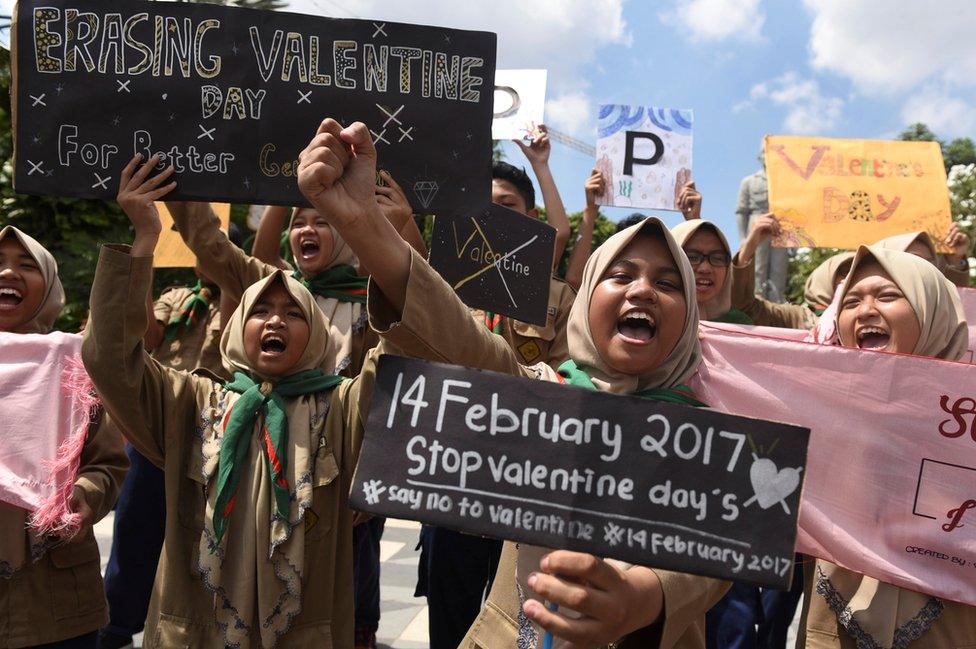
Muslim students protest against Valentine's Day in Surabaya, Indonesia

No emoticons for Malaysia :(
Next door to Indonesia, Malaysia has also seen a Valentine's backlash.
A group called the National Muslim Youth Association has urged women and girls to avoid using emoticons or overdoing the perfume, in a pre-Valentine's Day message.
The group's guidance included advice on how to combat the celebration of romance by making anti-Valentine posters and shunning Valentine-themed outfits.

The group made its anti-Cupid views clear through its Facebook picture

Weddings on Robben Island
Robben Island will forever be associated with the infamous prison that held Nelson Mandela - but since 2000, it has hosted a mass celebration of love on 14 February.
The tradition was started by South Africa's Department of Home Affairs and the Robben Island Museum, and now attracts couples from across the globe.
This year, 20 pairs are planning to say "I do" in the island's little white chapel.
The service is offered for a small fee, and includes a tour of the island.
Organisers say 2017's couples were "chosen by the department based on their diversity and interesting romantic stories".
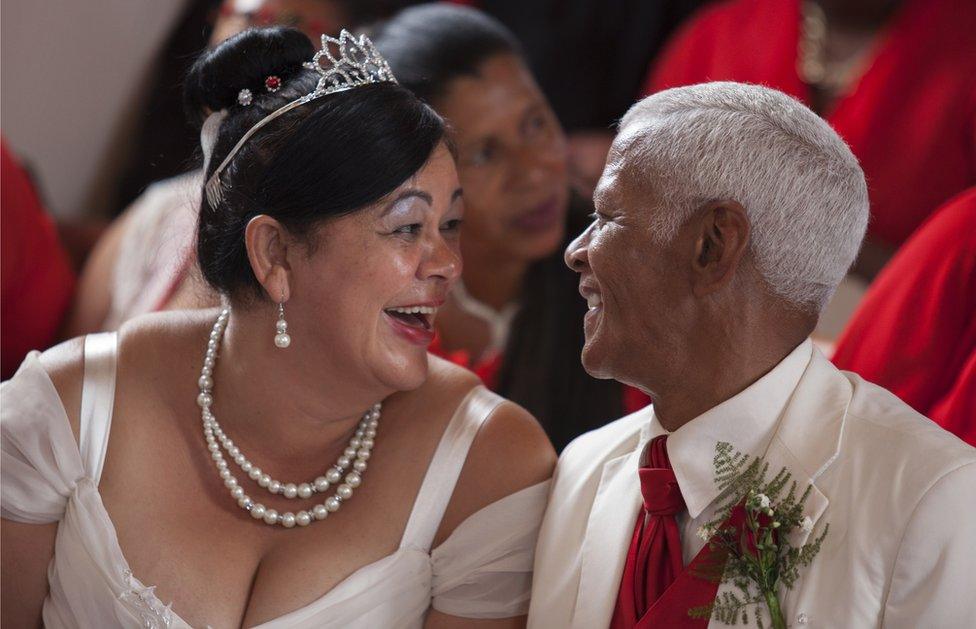
A bride and groom laugh during their Robben Island ceremony

Thailand's 'very magical vitamins'
Thailand's civil servants are handing out free pre-natal pills on the streets of Bangkok on Valentine's Day, hoping to boost the country's falling birth rate.
Around 1 million baht ($28,600; £22,900) has been spent on the pills, for prospective mothers aged 20 to 34.
The "very magical vitamins" (to use the government's words) contain folic acid and iron.
In 1970, Thai couples had an average of six children, but the figure now stands at 1.6.
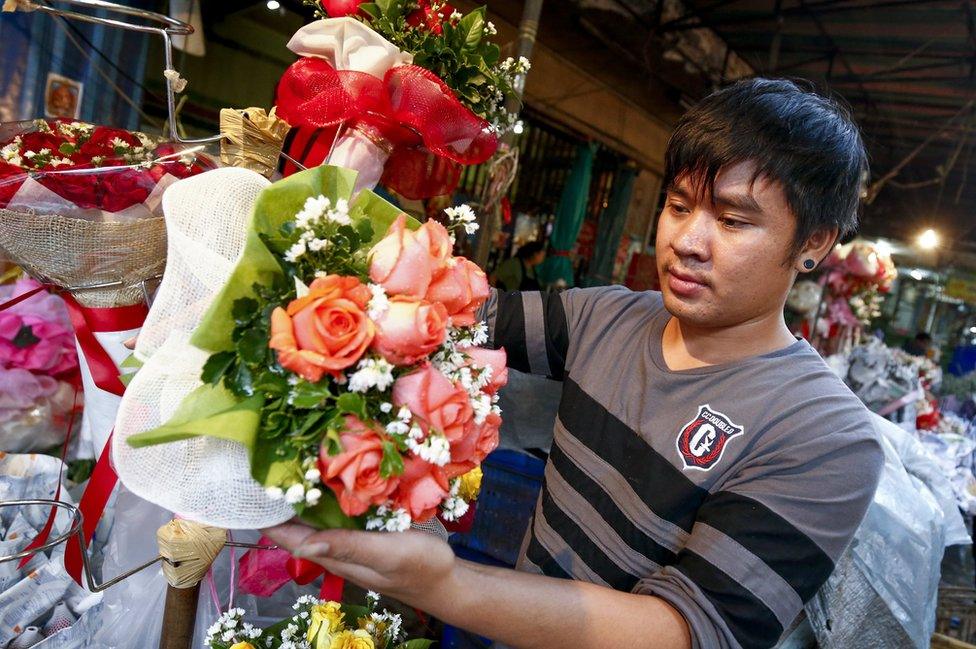
A Bangkok flower market on Valentine's Day

Pakistan's court crackdown
The High Court in Pakistan's capital, Islamabad, has banned public celebrations of Valentine's Day, saying it is not part of Muslim culture.
The festival has gained a foothold in recent years, but local critics say it is a decadent Western invention.
The court order bans the media from covering Valentine's events, and bans festivities in public places and government offices.
A court in Pakistan has banned public celebrations of Valentine's Day in Islamabad

Saudi's black market in roses
Saudi Arabia's religious police are on alert at this time of year for love-themed merchandise, including flowers, cards and suspicious "red items".
Florists have been known to deliver bouquets in the middle of the night to avoid detection, as determined lovers flout the countrywide ban.
A black market in roses and wrapping paper helps some broadcast their feelings.
But for others, it's the perfect time of year for a romantic break - to nearby Bahrain or the UAE, where celebrations are more tolerated.
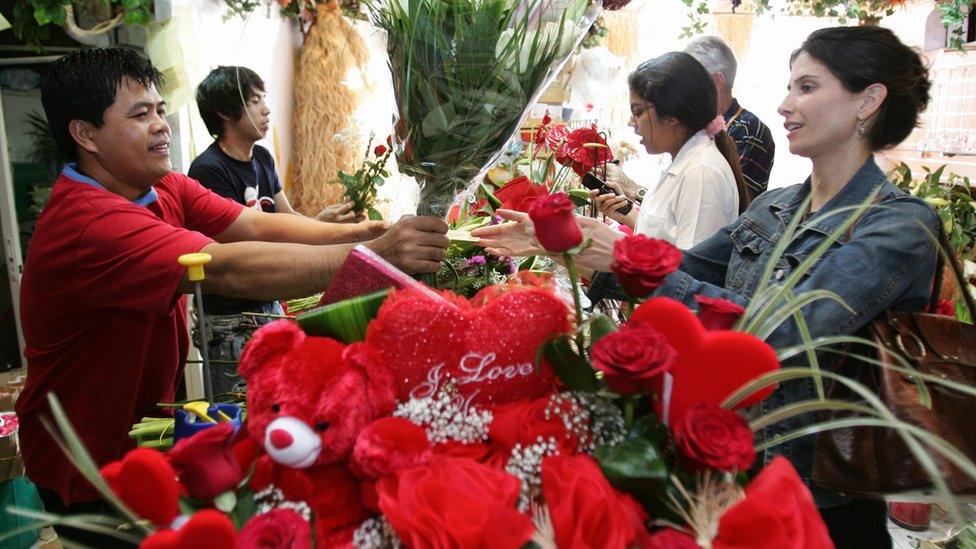
Holidays to Dubai are one way for Saudi couples to dodge the crackdown

Japan's anti-love protesters
As Japan geared up for the 14th, a group of Marxist protesters unfurled a giant "Smash Valentine's Day" banner in Tokyo.
The "Kakuhido", or Revolutionary Alliance of Men that Women find Unattractive, want an end to public displays of love that "hurt their feelings".
Members have been known to chant slogans including "public smooching is terrorism".
"Our aim is to crush this love capitalism," said Takayuki Akimoto, the group's PR chief.
"People like us who don't seek value in love are being oppressed by society," he added.
"It's a conspiracy by people who think unattractive guys are inferior, or losers - like cuddling in public, it makes us feel bad. It's unforgivable!"
The protests came as Japan's family planning association revealed that "sexless marriages" in the country are at a record high.
Nearly 50% of married Japanese couples had not had sex for more than a month and did not expect that to change in the near future, it said.
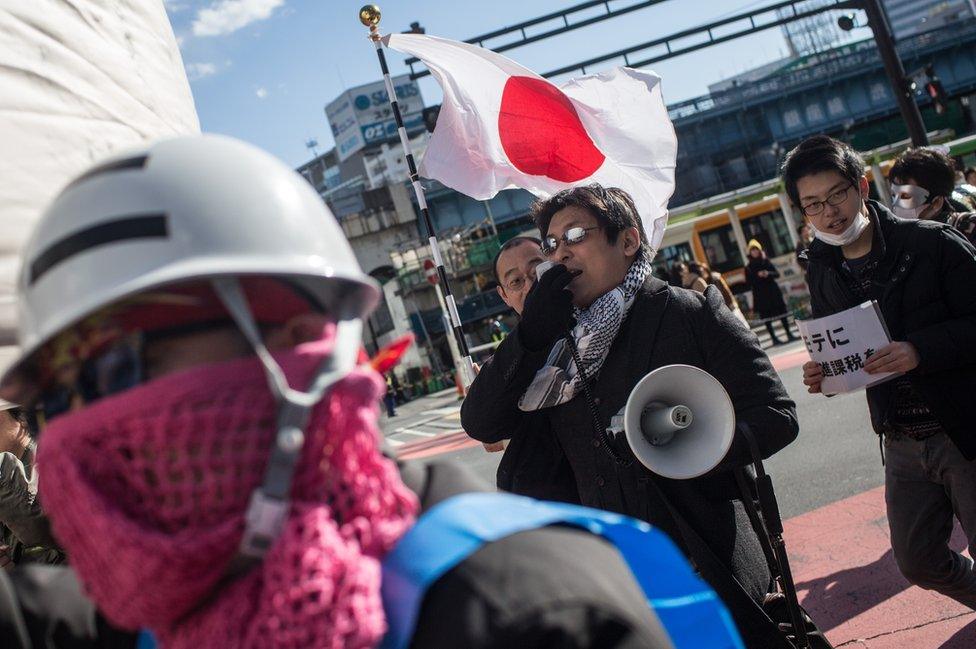
Japan's anti-Valentine's protesters claim that "public smooching is terrorism"
- Published14 February 2017

- Published14 February 2017

- Published13 February 2017
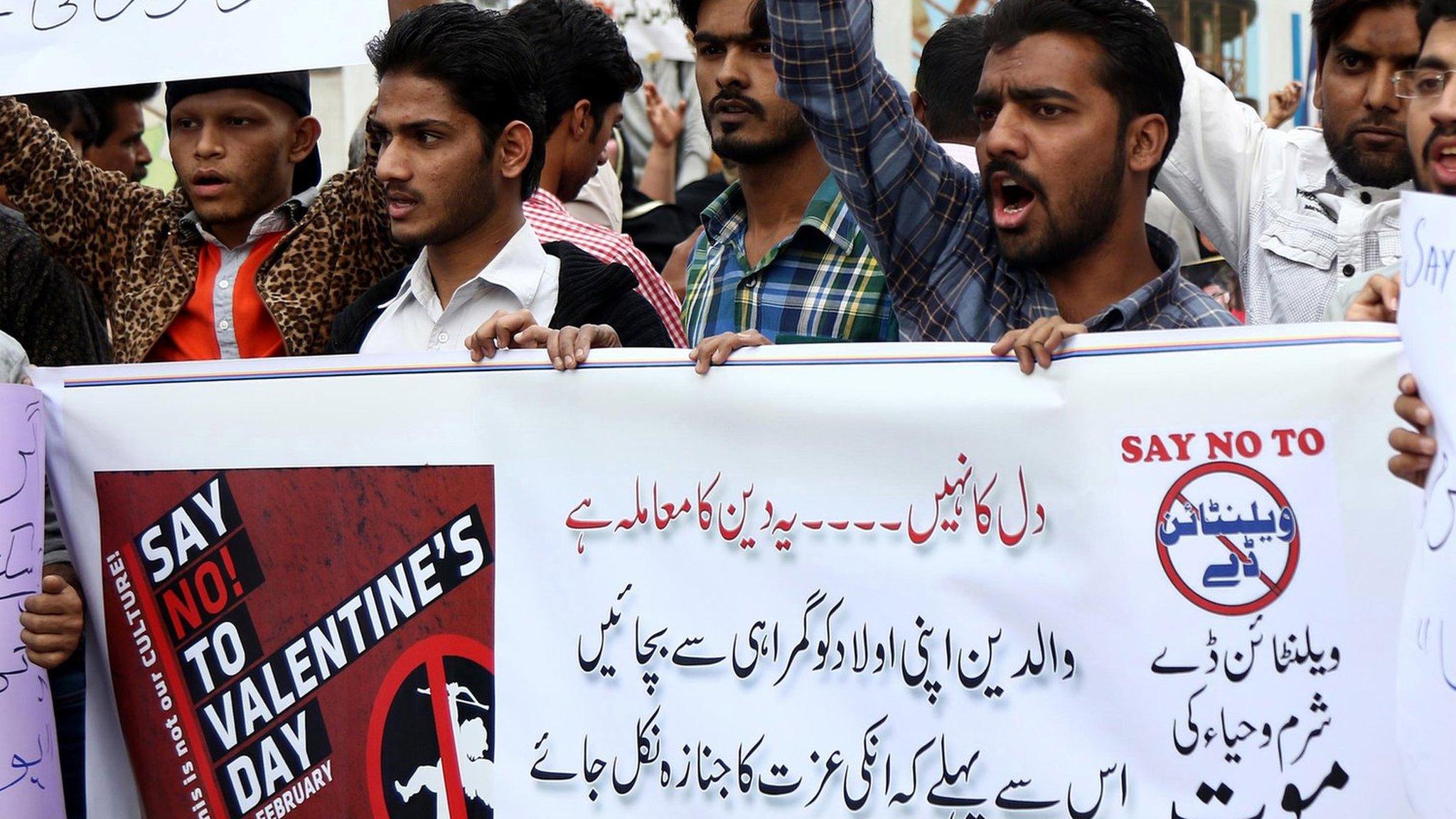
- Published12 February 2017
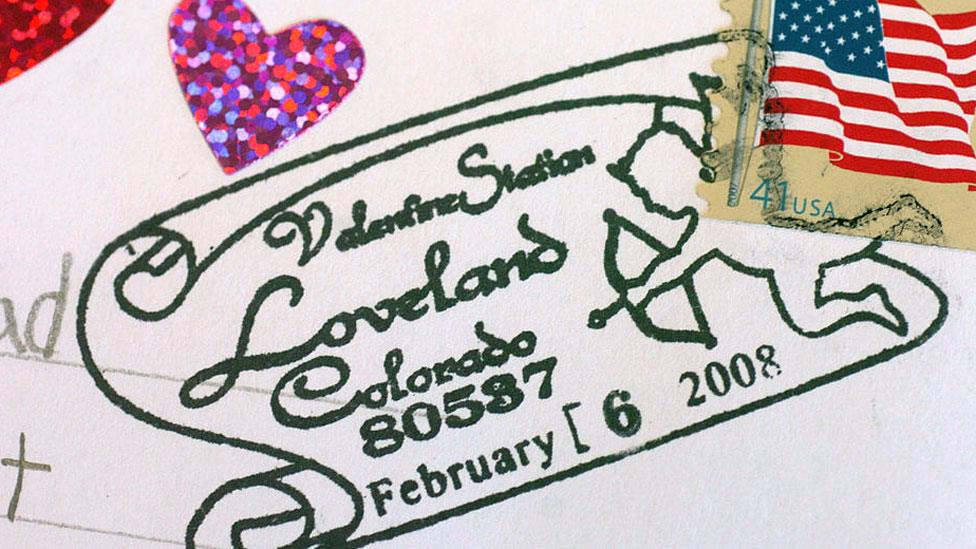
- Published10 February 2017
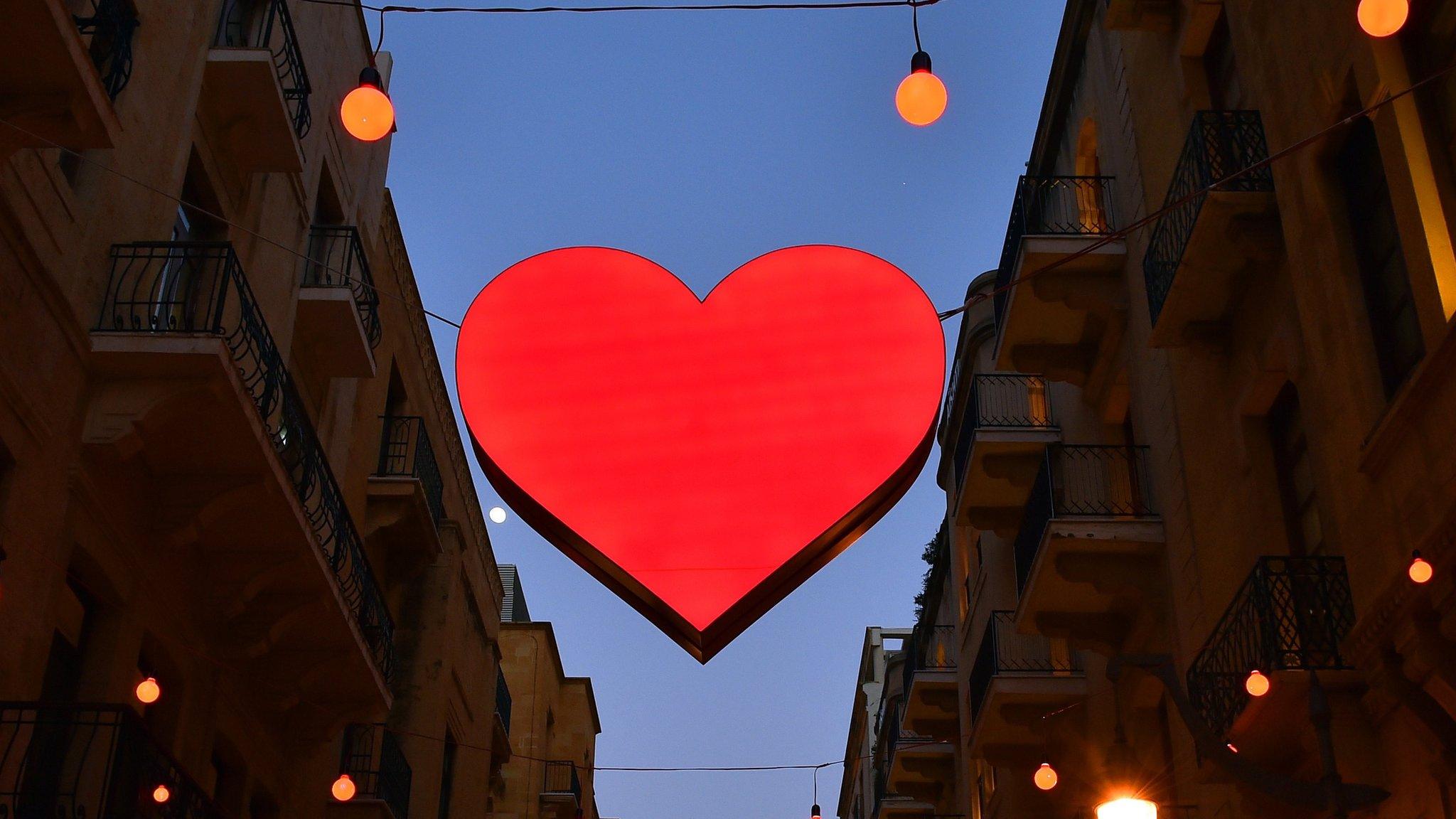
- Published30 January 2017
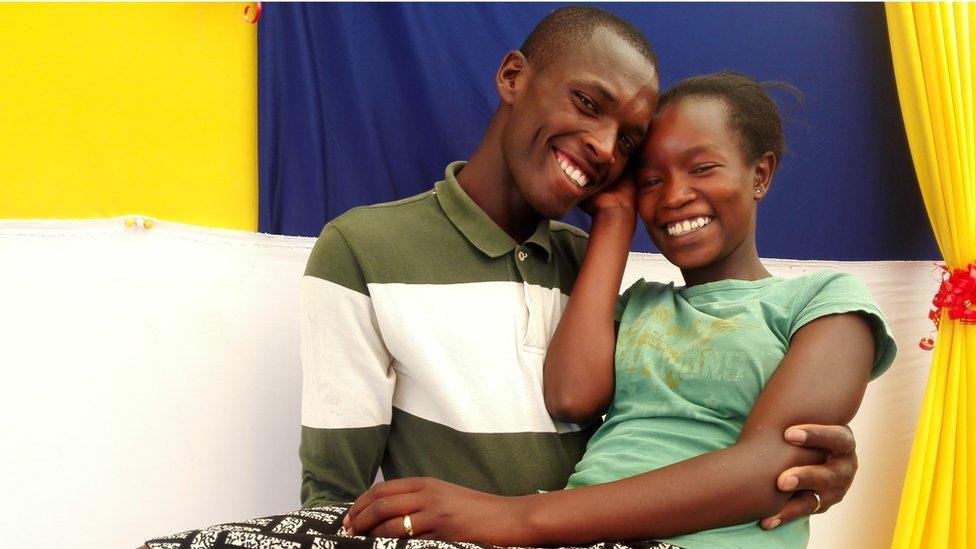
- Published14 February 2023
